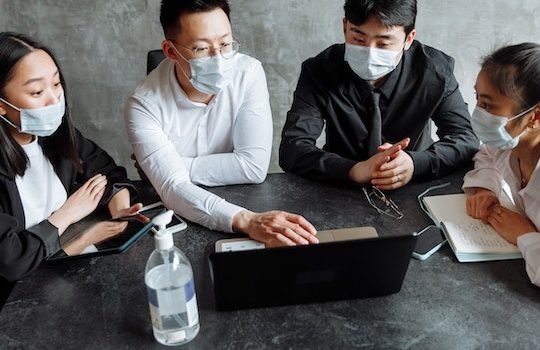
The Wilson Ornithological Society is pleased to offer grants to mentors working with undergraduate students on ornithological research projects. These grants are named in honor of Edward (“Jed”) H. Burtt, Jr., a Past President of WOS (1997–1999) and an exemplary mentor of undergraduates during his distinguished career. This grant program began in 2016. The WOS expects the Mentor to supervise the participation of the student(s) in the conference, with the goal of enabling the student(s) to get as much out of the experience as possible.
CLICK HERE for knowing What are Travel grants?
Eligibility
Mentor eligibility: The Mentor must be a member of the Wilson Ornithological Society at the time of application; must maintain membership through the period during which the research is done; and must be a member in good standing during the year in which the student presents the results at the WOS annual meeting. Receipt of funds supporting attendance at the meeting by both the student(s) and the Mentor will be contingent on the Mentor’s continuing active membership in the WOS.
Student eligibility: The student(s) to be mentored must at the time of application be enrolled in an institution of higher education and actively working toward a bachelor’s degree, but not necessarily at the same institution as the mentor. The mentor could, for example, be an ornithologist working for a not-for-profit organization who mentors undergraduates at a local college. Ideally, applications should come from students not yet in their senior year; however, projects involving work done in the spring/summer immediately following graduation may be considered as long as the proposal includes a clear indication that the student is likely to continue work in ornithology in some capacity (e.g., graduate study or employment).
Number of awards: Each Mentor-student team is restricted to a single award. No Mentor may be supported by two awards concurrently: a Mentor who received an award for research conducted in a given year (e.g., 2020) would need to wait until the next full application cycle (e.g., deadline of 15 December 2022) to apply for support of another student.
Benefits
The WOS will annually award up to two grants of $1,000 each to research projects that demonstrate the greatest capacity for mentoring and collaboration with at least one undergraduate. In addition, each mentor-student team will receive up to $2,000 (i.e., up to $1000 for the faculty mentor and $1000 for the student researcher(s)) to attend a subsequent annual meeting of the Wilson Ornithological Society where the student(s) will present the findings of their grant-supported work.
Application Process
Applications will be due annually on 15 December, with a committee decision made early in the next calendar year. (NOTE: DEADLINE FOR CURRENT CYCLE EXTENDED TO JANUARY 15, 2022.) Initial funds to support the research ($1000) will be available by 1 March. Recipients must complete the project no later than 1 April of the following year (for example, for an application submitted in December 2020 in support of work to be completed in summer 2021, the team must complete the project by 1 April 2022).
All application materials from the mentor and student should be submitted via the Application Portal. Please direct any questions about the application process to Kerri Cornell Duerr (duerrkc@westminster.edu), the award administrator.
Application materials to be submitted by the Mentor (3 files):
(1) Research proposal (file name: MENTOR LAST NAME_research proposal).
Page sizes should be 6 x 28 cm (8.5 x 11 in), with 2.5 cm (1 in) margins and 11 point, double-spaced typeface. Include page numbers and a header with the mentor and student’s last names (e.g., Smith and Jones research proposal).
Page 1: Title & abstract. Include a clear descriptive title of ≤ 15 words, the names of the student(s) and mentor, their address and/or professional affiliations, and contact information for both. Also include an abstract (max. 100 words).
Pages 2-4: Research description.
Background and objectives: Provide relevant background information, clearly stated project objectives, and research hypotheses and predictions with rationale.
Methods: Provide information on research methodology, analytical methods (including statistical treatments) and the locality where the research will be conducted. If your research involves obtaining permits or capturing live animals, make it clear that you have obtained, or have initiated the process of securing permits and/or necessary Animal Care and Use training documents.
Timeline: Include a very clear and detailed timeline of your proposed activities indicating which activities will be conducted independently by the student and which activities will include direct supervision of the mentor.
Significance: Provide a statement of how your research will contribute to the advancement of ornithology, including how your work will answer ornithological questions from the literature, and how it will stimulate new questions for future studies.
Pages 5-6: Budget, figures and tables, and literature cited. Provide an itemized budget for how the $1000 will be used. The funds should not be applied to mentor salaries or student stipends. Include a list of other sources and amounts of funding (applied for and/or received). Include a brief description of how the funds from the WOS will make the work possible, in relation to other sources of funding. Use tables and figures as needed to clarify the text, but try to minimize them to one additional page. List all references cited in the body of the proposal, using the citation format of the Wilson Journal of Ornithology.
(2) Mentoring plan and career impact (file name: MENTOR LAST NAME_mentoring plan).
Limited to 3 pages. Page sizes should be 6 x 28 cm (8.5 x 11 in), with 2.5 cm (1 in) margins and 11 point, double-spaced typeface. Include page numbers and a header with the mentor and student’s last names (e.g., Smith and Jones mentoring plan).
Include a description of your rapport with the student, including how long you have been working with the student and in what capacity. Also, discuss the student’s preparation for the project and relevance to the student’s academic or career goals. Also, include a statement of how the research project will develop the career of the student(s) and a brief statement of how the award will impact the career of the mentor.
Provide an explanation about the anticipated timeline for completion and presentation of the work, including anticipated time spent with the student and identification of the particular future WOS annual meeting at which the team expects the student to give a presentation based at least in part on the funded work.
(3) A one-page Curriculum Vitae (file name: MENTOR LAST NAME_CV).
Application materials to be submitted by the student(s) (3 files):
(1) Personal statement (file name: STUDENT LAST NAME_personal statement).
Limited to 2 pages. Page sizes should be 6 x 28 cm (8.5 x 11 in), with 2.5 cm (1 in) margins and 11 point, double-spaced typeface. Include page numbers and a header with the student and mentor the last name (e.g., Jones and Smith’s personal statement).
Provide an essay explaining your interest in the proposed research and how the research will enhance your graduate school and/or career plans. State your research interests, experiences, educational goals, career objectives and any information that may aid the selection committee. Be sure to include any interest you may have in specific aspects of the research project you are proposing and your role in developing the proposed project.
(2) Résumé (file name: STUDENT LAST NAME_resume). A one-page resume of education and work experiences. List courses you have taken that relate to your research interest or have helped prepare you to conduct the research, as well as any other relevant experiences or skills.
(3) Transcript (file name: STUDENT LAST NAME_transcript). An official or unofficial transcript that clearly indicates that the applicant student is actively working toward a degree and in good academic standing.
| Theme | : Undergraduate Mentoring Grants |
| Applicant Country | : WorldWide |
| For more information | : Wilson Ornithological Society |




